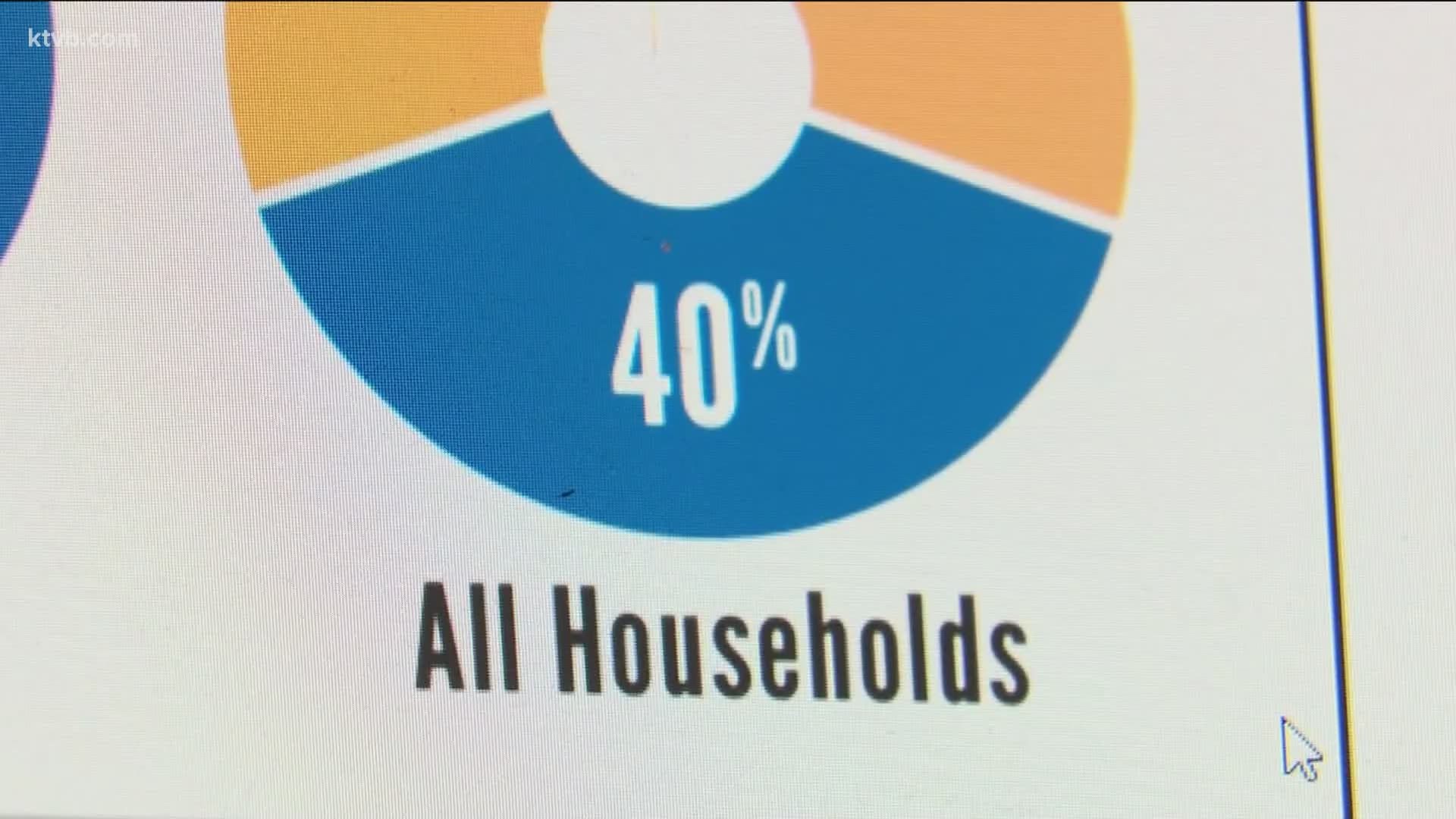BOISE, Idaho — Many people are struggling to make ends meet from the pandemic, but there is a staggering number of people in Idaho who were struggling even before the coronavirus.
United Way of Treasure Valley calls this population, “ALICE”, an acronym for Asset limited, income constrained, employed.
“These are the folks that we rely on to run Idaho,” said Nora Carpenter, president of United Way of Treasure Valley. “They are bagging our groceries, stocking our shelves, driving trucks, daycare providers, healthcare providers – they really work across all the critical infrastructure in our state that allows our state to have a strong economic engine.”
40% of Idaho’s estimated population of 1.8 million fall under the ALICE and national poverty level populations, according to United Way’s 2020 ALICE report. This percentage has grown since the last ALICE report.
“We’re seeing folks who were classified as the technical definition of poverty moving up, so that’s good - they’re earning more, they’re beginning to move towards sustainability,” Carpenter said. “But more importantly, even pre-COVID we were seeing folks who were financially stable moving down into the ALICE population because of the cost of living where they live.”
Carpenter said the cost of living increase comes from rising housing prices, cost of food, and childcare.
“The basics to survive have grown from an expense standpoint, and that has moved many folks from stability to instability,” Carpenter added.
2020 ALICE data also revealed a greater number of senior citizens in the ALICE population.
“So that tells us that our seniors are struggling a bit, that the traditional senior support resources like social security and perhaps a pension aren’t cutting it because of the cost of living,” Carpenter said.
Carpenter mentioned the ALICE population could be reduced if Idaho had more public transportation options.
“Idaho is the only state left that does not provide public funding for public transportation,” she said. “There’s a place where people can use their voice, for example, to encourage elected officials to look into and consider some sort of public transportation funding.”
Carpenter said that everyone can help by being mindful of different circumstances than their own.
“The more that we can understand that the context of working hard doesn’t always mean that you are automatically going to get ahead, because the world is a complicated place, the more that we can have empathy and kindness in that space,” she said. “That helps ALICE today, and it also helps ALICE down the road.”
For anyone interested in helping others in need, sign up as a volunteer for United Way of Treasure Valley’s Days of Caring event.

